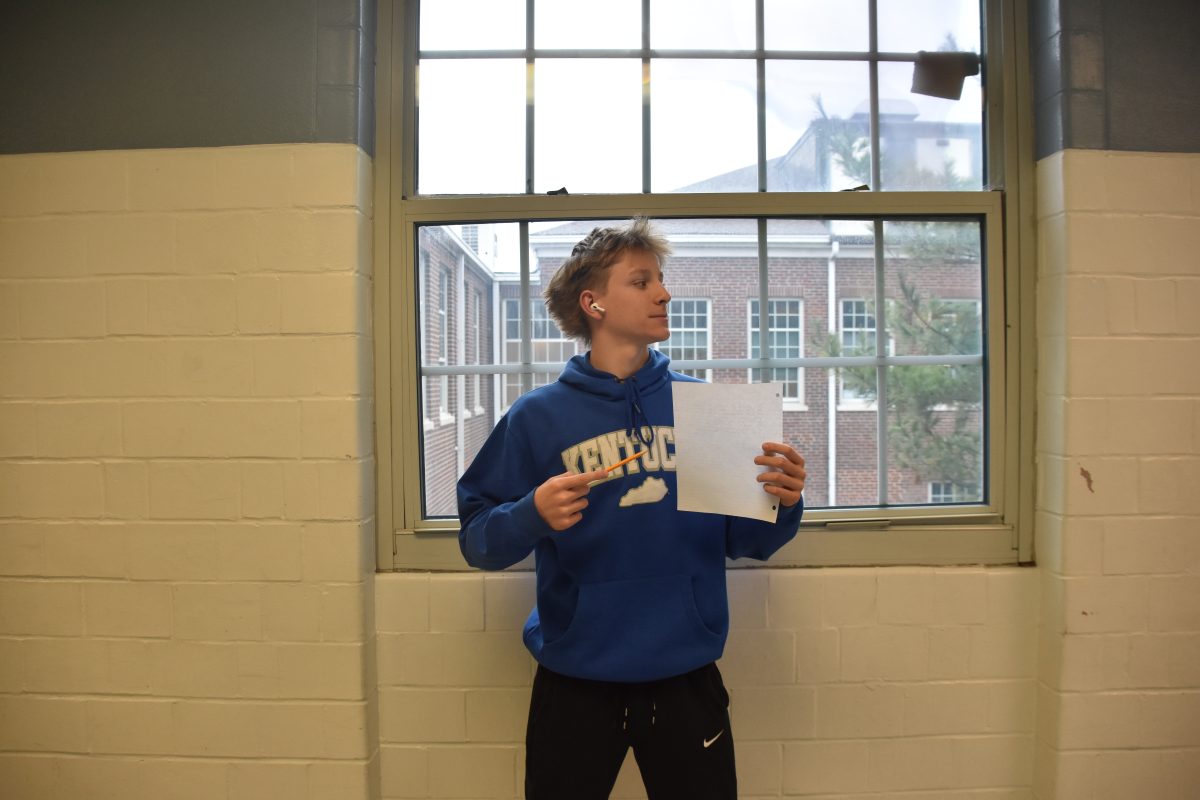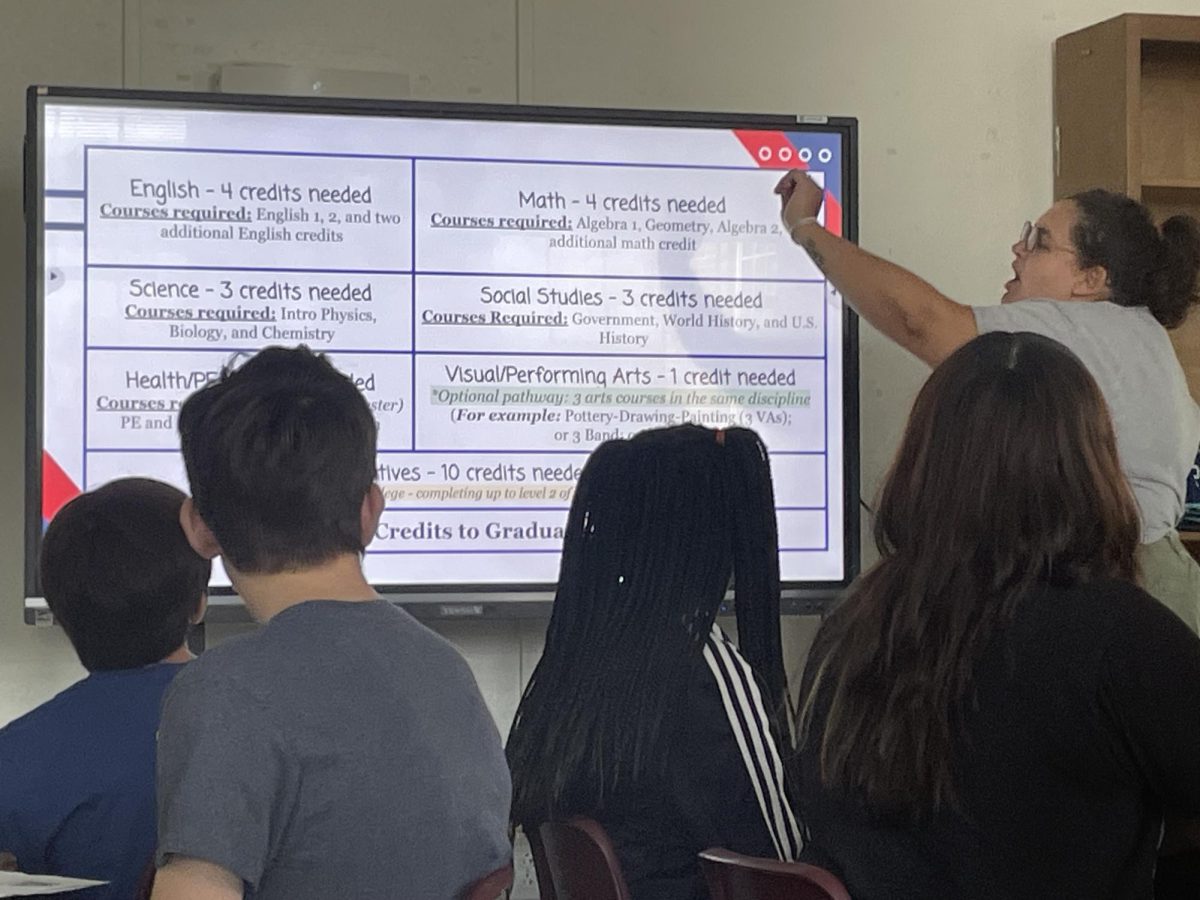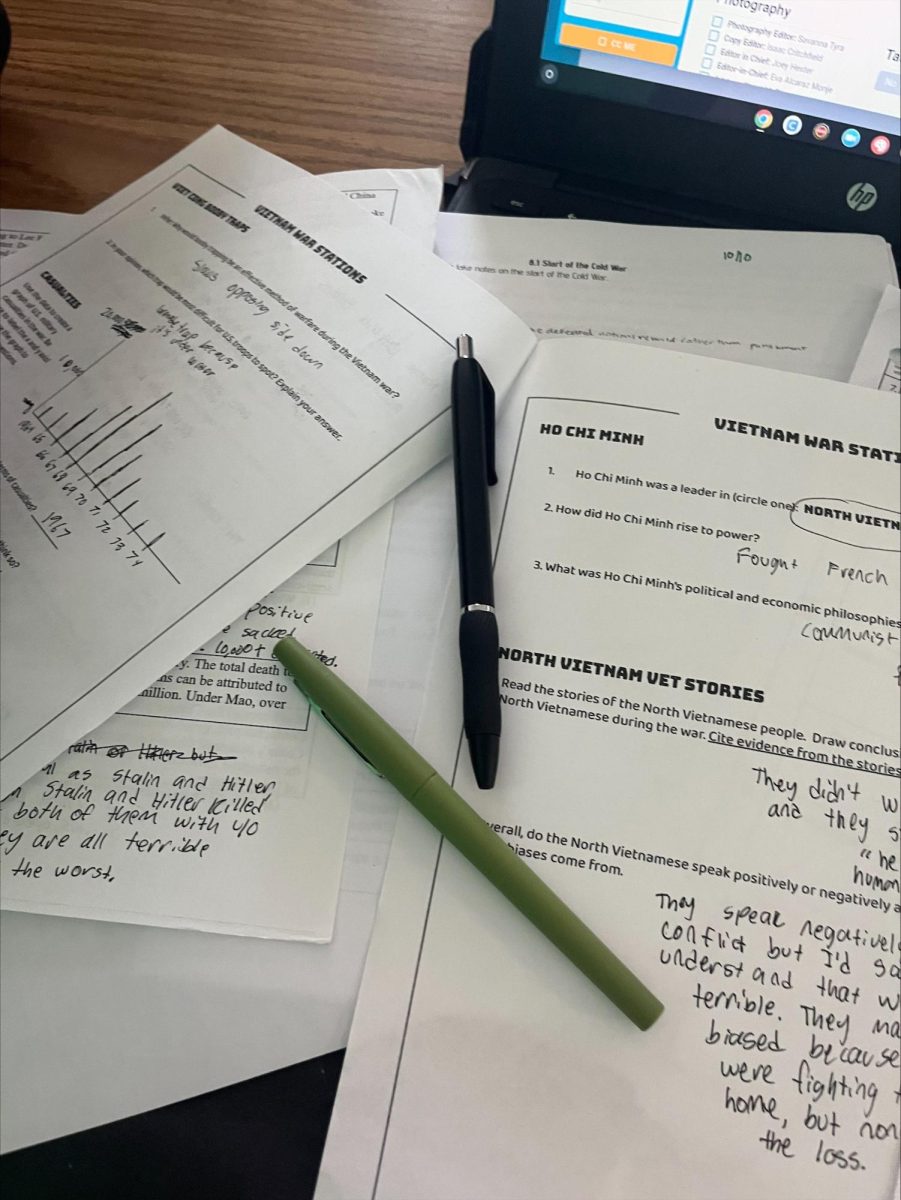Many classes at Lafayette offer three versions of the class at different course levels. The typical three levels are general, advanced, and advanced placement (AP). AP classes tend to be faster-paced and more strenuous.
Lafayette offers 27 AP courses students can take over their four years in high school. Some common and popular AP classes are AP Psychology, AP Seminar, and AP World History. AP classes can help students learn essential time management skills and other necessary college skills by teaching them to work in a high-stress environment.
AP classes can be time-consuming, but in the end, they pay off if you succeed. The most notable way these classes pay off is by giving students an advantage in college. Certain colleges can offer credits if a student scores high on an AP exam. This allows students to skip over some courses, giving them fewer college classes to take and have to pay for. Another perk to taking AP classes is the ability to receive scholarships. AP students have a better chance of earning scholarships; many scholarships consider AP results when choosing their winners.
Regular classes of each course can also benefit students. Some students work slower and need more hands-on time with their teachers. Regular and AP classes have course-driven finals at the end of each semester. The main difference between the two-course levels is the difficulty level and amount of coursework.
When talking to the World History teacher, Mrs. Hannon, she stated, “In Advanced World History, questions are given in forms of multiple choice, categorization, multiple select, and matching.” Teachers will provide specific readings for students. Unlike advanced classes, work associated with AP World History is much more independent.
“AP coursework is more student-led. Students should not sign up for AP World History if they do not plan on reading the textbook…and completing the work associated with the reading,” Hannon recommends. Most of the AP student’s learning comes from reading textbooks and doing assignments on their own. AP World History covers many topics, so success comes from the student’s understanding of the readings and ability to use this knowledge on exams.
The Times interviewed Brody Antrobus, a sophomore at Lafayette High School who is taking three AP classes. His reasoning for taking AP classes this year is his want to progress faster than he previously was. Antrobus also states he wants to invest less in college. With the weight of three AP classes, he chose them solely based on his interest in the topics discussed.
All course levels have the same objective, to teach students the importance of having a solid understanding of the topic. The key difference between the two levels is the method of instruction. Although AP classes aren’t necessary to graduate, they can benefit students when applying to higher education colleges. Taking AP classes shows students’ capability to handle harder subjects, which can stick out when applying to higher education. In addition, AP classes can influence a student’s weighted GPA. Taking AP classes boosts a student’s GPA and gives them an advantage in getting accepted into certain colleges with high GPA requirements.
Students should not need to feel peer pressured to take a particular course level. The intense workload and time management are stressful for many. Responsibilities outside of school such as extracurriculars, jobs, or personal duties can be overwhelming and hard to balance AP classwork with.
When taking an AP class, it’s important to be fully committed to succeed, and persistent when dealing with college-level classes. Time management and much effort are needed when completing college-level courses. Hannon told The Times, “Students need to be prepared to take the time to complete college-level work with fidelity.”
Some may not receive the college credits they strive for even if they complete the AP class with a passing grade. Your credit received for an AP class is based upon your scoring on the AP exam, not participation or in-class grades. If a score of 3, 4, and 5 isn’t accomplished on the final exam, then the college credit for the class can’t be given.
No matter what classes students take, they all will prepare them for the future. Passing each class with the required grade will earn students their high school diploma.











